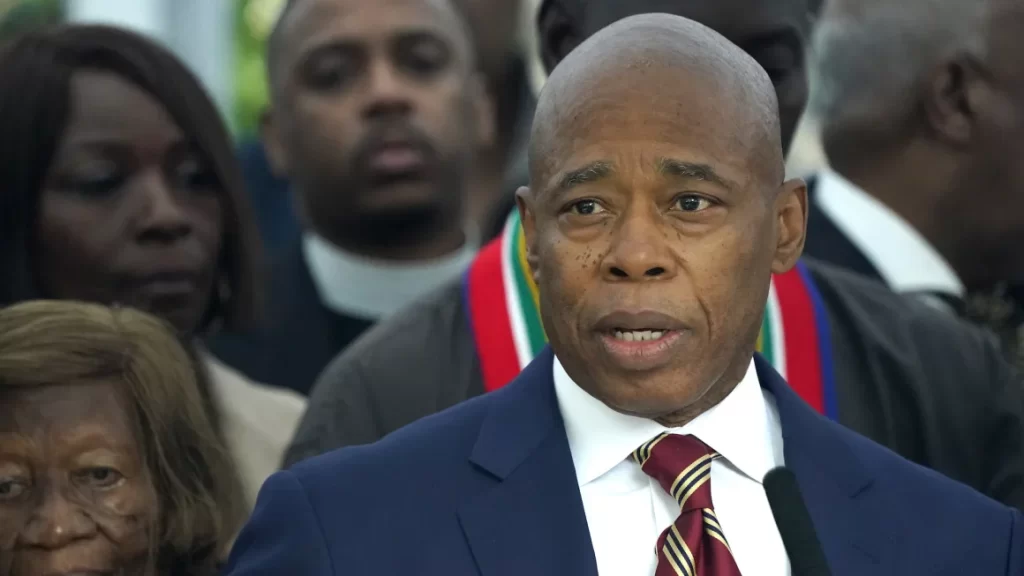New York City Mayor Eric Adams is facing serious federal charges, complicating the landscape for political narratives surrounding corruption and bias in the judicial system. Federal prosecutors allege that Adams engaged in a “long-running conspiracy,” receiving luxury gifts and travel from foreign business figures and at least one official from Turkey. Indicted on five counts of public corruption, Adams has firmly denied any wrongdoing, asserting that he is being targeted for his political positions.
“I always knew that if I stood my ground for all of you, that I would be a target – and a target I became,” he stated after news of the indictment broke. This claim—that legal troubles arise from political stances—is a common defense among high-profile figures facing federal charges.
Former President Donald Trump has made similar assertions during his third campaign for the White House, claiming he has been unfairly pursued by the Department of Justice. If re-elected, Trump has pledged to leverage the DOJ against his political opponents.
While the indictment of Adams, a Democrat, might seem to challenge Trump’s narrative, it does not definitively prove or disprove his claims. The recent conviction of former Senator Bob Menendez, another Democrat, after a tumultuous trial process, further complicates the political discourse surrounding legal accountability.
A noteworthy point in Trump’s favor lies in the fact that the Southern District of New York, which is prosecuting Adams, previously opted not to pursue charges against Trump for campaign finance violations related to hush money payments made during the 2016 election. It was Manhattan District Attorney Alvin Bragg, an elected official, who later revived the case using state law to address what were initially federal violations. Trump was ultimately convicted on 34 counts of falsifying business records, a case now set for sentencing in late November, post-election.
Moreover, Special Counsel Jack Smith, appointed by Attorney General Merrick Garland to oversee investigations involving Trump, pursued federal indictments against him for attempting to overturn the 2020 election results and for mishandling classified documents. However, these cases have encountered significant delays in federal courts. A Trump-appointed judge in Florida dismissed the classified documents case, siding with Trump’s attorneys on the alleged unconstitutionality of Smith’s appointment. The election interference case has also been stalled, pending decisions from the Supreme Court, where a third of the justices were appointed by Trump.
As the legal drama unfolds, the government’s case against Trump may still emerge before voters head to the polls, even if formal proceedings don’t commence until after Election Day. The ongoing cases highlight a broader trend: federal prosecutions of elected officials show a near-even split across party lines since the turn of the century. Adams’ indictment would not be included in such lists, as he is a city official, but other recent high-profile cases like that of former Representative George Santos, a Republican, have made headlines.
Elie Honig, a former assistant U.S. attorney and CNN’s senior legal analyst, emphasized the significance of the Southern District of New York’s involvement in prosecuting Adams. Notably, this office has a history of securing convictions in corruption cases, including those against prominent political figures from both parties. He stressed the gravity of charging a sitting New York City mayor: “If you’re going to charge the sitting mayor of New York City, you better be damn sure that you have the evidence on him, because if you don’t, it will be a disaster.”
As the situation evolves, Adams remains steadfast, but the ramifications of his indictment are palpable across New York’s political landscape. Notably, key figures within the Democratic Party, including Representative Alexandria Ocasio-Cortez, have called for his resignation. Speculation also surrounds Governor Kathy Hochul, who has the authority to remove Adams but has not yet indicated any intentions to do so.
In this fraught political climate, the interplay between Adams’ legal challenges and Trump’s claims of persecution creates a complex narrative. As federal investigations continue to unfold, the implications for both local and national politics remain significant.







